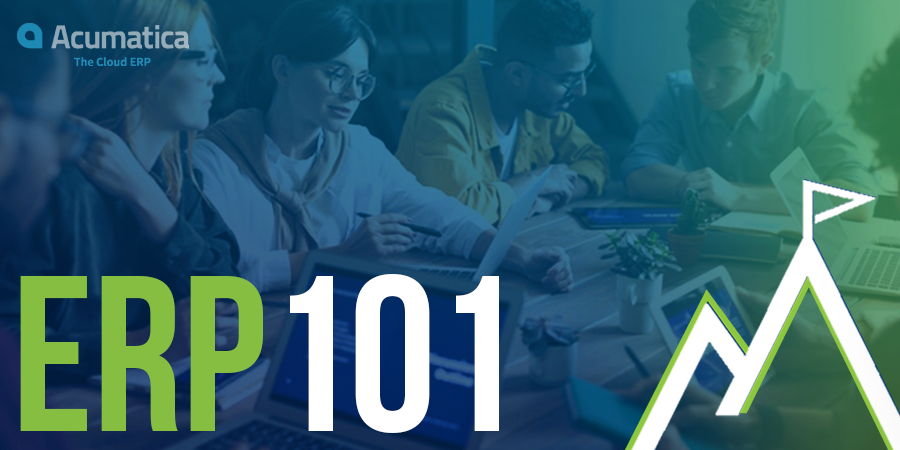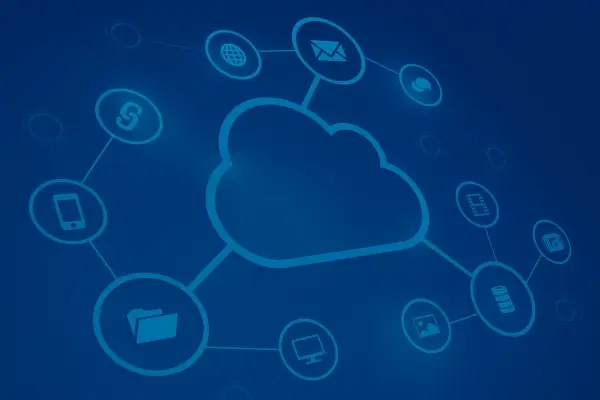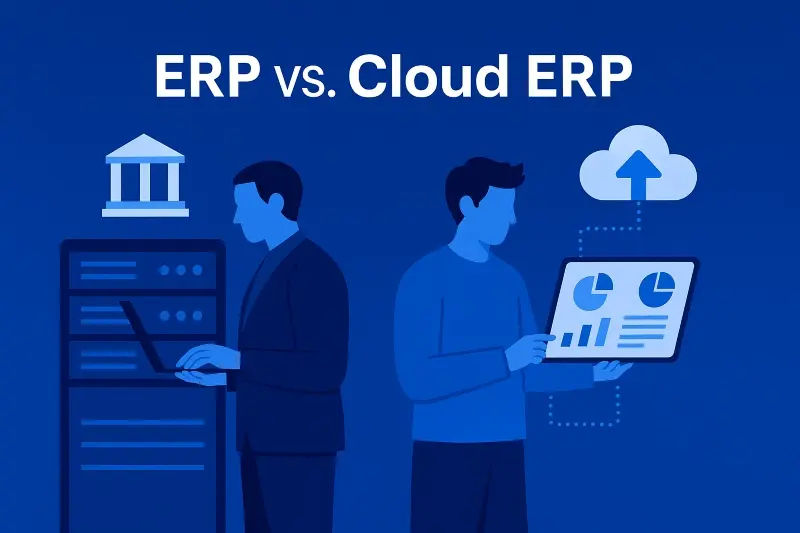The Benefits of Cloud ERP Software: Flexibility, Savings, and Security
Updated 9/1/25 Cloud ERP isn’t just another business tool—it’s the cornerstone of digital transformation. The phrase gets tossed around often, but...

ERP (Enterprise Resource Planning)—sometimes called business management software or even advanced accounting software—is the system that keeps modern businesses connected and running smoothly. Whatever you might call it, here’s what it means and why it matters.
An ERP system is a single platform that ties all your business operations together. Think of it as the central database your entire team uses:
The warehouse manages inventory and shipments.
Customer service reps enter orders, resolve tickets, and view customer histories.
Accounting tracks payments, manages cash flow, and oversees finances.
Operations, sales, and HR all coordinate seamlessly in one system.
A truly connected ERP benefits everyone—whether you’re in the office, out in the field, or working in the warehouse.
ERP platforms are built from integrated modules that can be packaged to fit your industry. The modules you choose depend on the specific needs of your business, but here are the most common:
With full accounting functionality, you can manage cash flow, invoices, payments, and reporting in one place—gaining real-time visibility into your company’s financial health.
Streamline purchasing, inventory, sales orders, and vendor relationships to reduce costs and deliver faster. A distribution functionality keeps products moving without bottlenecks.
Plan production schedules, manage work orders, track resources, and keep up with customer demand. The manufacturing management functionality ensures efficiency from planning through delivery.
The project accounting module gives you control over budgets, expenses, and profitability. For construction companies, this is often referred to as the module, helping track costs by project, phase, or cost code. job costing
Centralize customer data and interactions to improve service and strengthen relationships. The CRM module makes it easier to manage leads, opportunities, and service tickets in one place.
With ERP, your business runs on one connected system. That means you can:
Gain financial control: Accounting, cash flow, and assets are all connected for instant insight.
Streamline operations: Purchasing, inventory, and order management all live in one workflow.
Get real-time reporting: Make smarter decisions with up-to-the-minute data.
Eliminate miscommunication: Track every client interaction in one CRM, so nothing slips through the cracks.
Cloud ERP runs securely in the cloud, rather than on in-house servers. The benefits are clear:
Anytime, anywhere access: Teams log in from the office, warehouse, or home.
Automatic updates and backups: Always current, no manual maintenance.
Lower IT overhead: Infrastructure runs offsite, managed by experts.
Put simply: the “cloud” means your ERP is hosted on secure servers you rent instead of hardware you own.
QuickBooks and FreshBooks are great for smaller companies with simple accounting needs. But as businesses grow, they often outgrow these systems and need more advanced functionality—like inventory control, customer management, or project tracking.
When that happens:
Manual work increases
Errors and duplicate data become more common
Reporting across systems gets harder
That’s where ERP comes in. ERP software connects accounting, inventory, sales, projects, and more in one platform:
Data flows automatically between teams
Everyone has accurate, real-time information
The business sees fewer mistakes, less busywork, and a complete picture of operations
In short: QuickBooks and FreshBooks are ideal for smaller companies with simple accounting or basic business needs. ERP software is the next step when you need more advanced functionality and scalability.
A modern, cloud-based ERP system replaces disconnected apps with an all-in-one platform for accounting, sales, operations, and more. This seamless integration improves collaboration, eliminates manual work, and gives you the real-time insights you need to grow with confidence.
If your business is still running on disconnected tools, now’s the time to consider ERP—the connected foundation for smarter decisions and future-ready growth.

Updated 9/1/25 Cloud ERP isn’t just another business tool—it’s the cornerstone of digital transformation. The phrase gets tossed around often, but...

Understanding ERP vs Cloud ERP Every business runs on processes like finance, supply chain, projects, payroll, and reporting. When those processes...